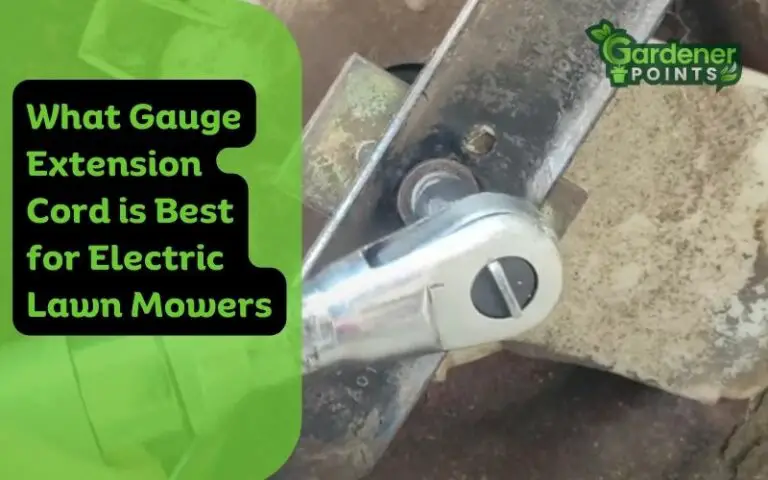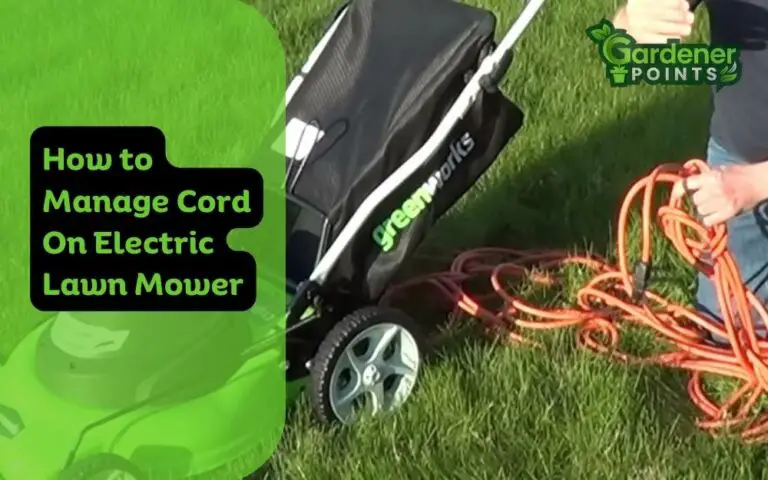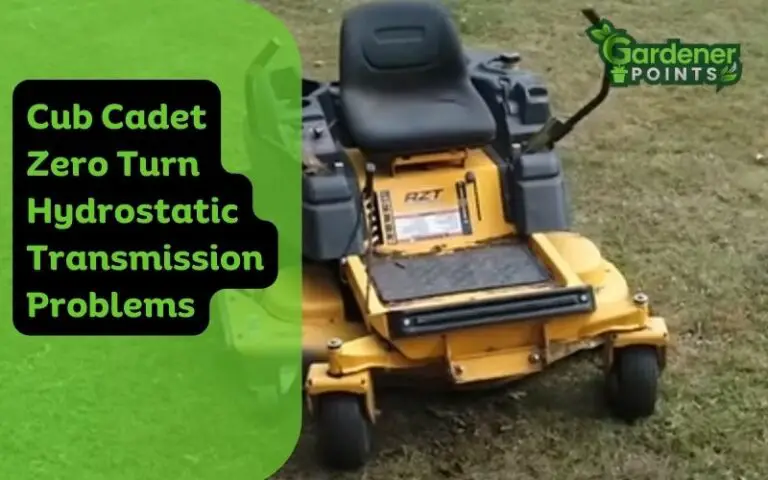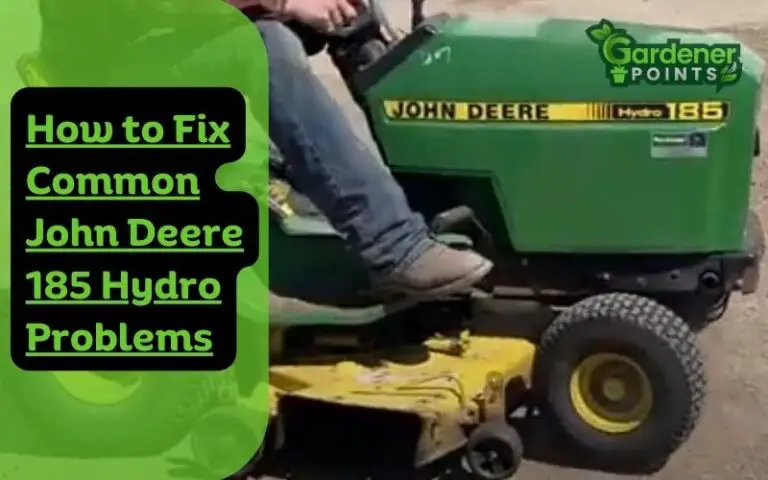How to Choose the Right Extension Lead for Lawn Mower?
Electric corded lawn mowers are great for power and reliability, but portability is where they fall flat. Although there is a straightforward fix to that problem is to use an extension lead for your lawn mower.
While the fix is easy, the trouble begins with finding the best lawnmower extension lead. There are plenty of options, but most of the time, they are unreliable.
That’s why we bring you the top 5 extension lead for electric lawnmowers to ensure reliability, quality, and performance. Let’s get going.
Best Extension Lead For Lawn Mower
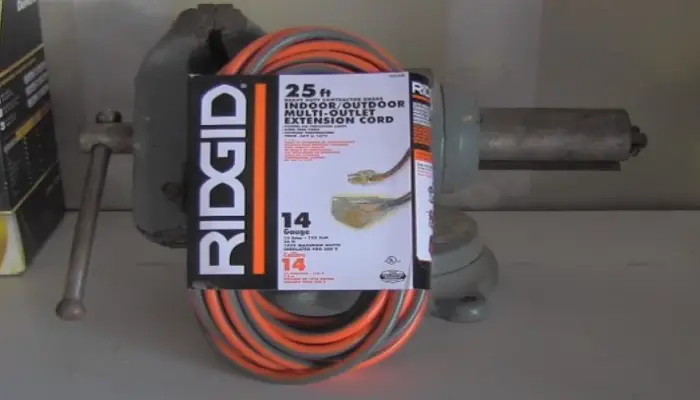
Finding extension cords for a lawn mower is effortless, but ensuring quality is difficult.
Thankfully, the 5 options we picked are some of the best based on user experiences. So, whichever one you get, you definitely end up with quality.
#1 Clear Power 100 ft Outdoor Extension Cord
Ensuring safety and reliability in their cords has always been a priority for Clear Power. And to satisfy the users, they also prioritize quality after-sales service to ensure customer retention.
Why have we chosen the product?
What makes this extension cord great is its protective capabilities and reliability. The cables come with excellent resistance against weather and abrasion. The build quality of these cables is very reliable and doesn’t concern you with any kind of electrical issues at all.
How is it performed for lawnmowers?
In the user experience of lawnmowers, the cable was quite solid and durable for most of them.
It moves along well with a lawn mower but is not flimsy, so there won’t be any breaking issues. Still, the cord delivers softness to move it around freely.
After using the cord, it’s easy to pack up and store the cords with the Velcro strap. That’s something a lot of users praised because of the 100 feet length of the cable.
What we liked
- Excellent build quality and durability
- Perfect length for lawn coverage
- Quite lightweight to carry around
- Includes velcro straps for easy storage
- Good value for money
Where have we faced difficulties
- Flexibility isn’t a strong suit
- The caps are a bit too tough for outlets
#2 Addlon 50 Feet Outdoor Extension Cord
Addlon cords have a name for themselves regarding the durability factor. These cords are no different from the rest in terms of long-lasting performance. In real use, these cords turn out to be almost flawless.
Why have we chosen the product?
Sturdiness and excellent build quality are strong suits with this extension cord. As long as you need a 50-feet extension cord for your lawn mower, this can easily deliver on all performance aspects you desire.
How is it performed for lawnmowers?
Coming to the performance aspect of the cables, they handled most of the lawnmowers pretty well, according to users. The 16AWG gauge in the cord can go through some tough outdoor conditions.
One of the noticeable benefits of the cords is the sturdy connections on each end of the product. As most users say, they will never likely have issues of tearing loose or pulling out whatsoever.
A lot of the users shared their experience with the included bag. It helps to store the cord after using it on your lawn mower.
What we liked
- Great protective abilities
- Comes with velcro strap and storage bag
- Very solid build quality
- Sturdy connectors
- Perfect cord length
Where have we faced difficulties
- The connectors may keep coming off
- Can have some cracking in cold
#3 Huanchain Indoor Outdoor Black Extension Cord
Huanchain is a popular brand when it comes to cords and cable extensions. Their cables are set to deliver high-quality build and safety to ensure good performance in most applications.
Why have we chosen the product?
Something that makes this extension cord exceptional is its unique design aspects. The design makes the cord very flexible and convenient to use. At the same time, it delivers on the durability aspect.
How is it performed for lawnmowers?
A user shared their experience of running the cable through different platforms up and down with its flexibility. While the cable is flexible, it’s not fragile; it also works excellent for sturdiness.
People could easily use the cable with the lawnmowers because of the 13 AMP compatibility. If you have a lawn mower with less than a 13 AMP rating, you can easily use the cable to use the mower.
Another impressive factor about the cable was its easy storage. According to users, they could easily pack up the cable using the velcro strap included with it. There is also a plastic bag to store the cable.
What we liked
- Excellent for flexibility
- Usable with most lawn mowers
- Straightforward and convenient storage
- Unique and practical design
- Good value for money
Where have we faced difficulties
- A little bit flimsy
- Outside is a bit tacky and rubbery
#4 GearIT 14/3 Outdoor Extension Cord
If you don’t mind paying, GearIT has your back with premium-quality extension cords. The cords from GearIT are excellent in reliability and usability for outdoor conditions.
Why have we chosen the product?
While it may have higher pricing, it delivers premium quality. You won’t have to bother about the extension cords breaking or damaging in the middle of use to cause accidents.
How is it performed for lawnmowers?
One of the best things about the cords is that they are accurate for power delivery. These cables don’t drop any amperage even in the 100 feet distance. Most users have used the cables to power their typical 10 Amp lawnmowers.
Apart from power delivery, the cables are also great for heavy-duty applications. Dragging out the cables around the lawn with the mower doesn’t damage them, based on some user experiences.
It’s not just about the external damage; the cables don’t get hot even after hours of use. As per the user comments, these cords don’t get warm after long lawn mowing sessions.
What we liked
- Great premium quality
- Doesn’t drop any amperage over distance
- Heavy duty weatherproof construction
- Excellent thermal protection
- Provides good safety measures
Where have we faced difficulties
- It can feel a bit expensive
- The cords are a bit heavy
#5 POWGRN 100 ft 12/3 Outdoor Extension Cord
Here’s an extension lead for your lawn mower that can flawlessly deliver in almost every aspect. Whether you think about flexibility or durability, it has everything to offer.
Why have we chosen the product?
The reason for choosing this cord is its usability in almost every scenario. The flexibility and high-quality construction make the cable perfect for lawn mower usage.
How is it performed for lawnmowers?
Coming to the performance of the cables, the first impressive factor is their flexibility. Getting the cord through all the contours on the lawn is a unique experience many users have shared.
According to a user, the cables come with pretty sturdy ends on the connectors. Also, managing the cords are quite easy for most people.
As for the construction, these cords provide some excellent build on them. The jacket on the cable is very sturdy, which gives you the best possible durability you can expect from the cords.
What we liked
- Great flexibility
- Excellent quality construction
- Easy to manage the cords
- Proper weather resistance
Delivers all the required power
Where have we faced difficulties
- The size can be a bit shorter
How To Choose The Right Extension Lead For Lawn Mower?
When buying an extension lead for a lawn mower, you must consider several factors to get the right one. Let’s get through those factors below.
Cord gauge
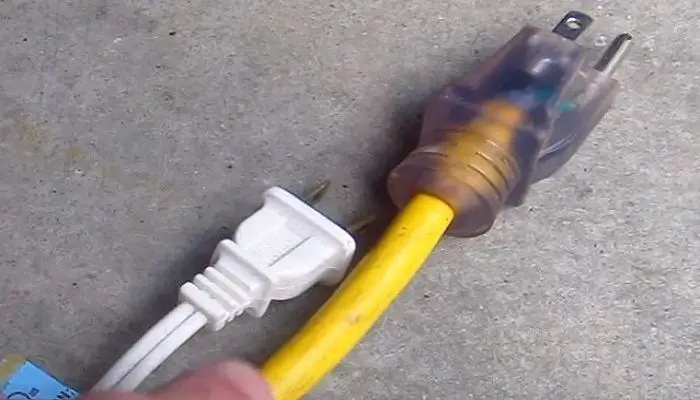
The gauge of the cord defines how thick the wires will be in your extension lead. Typically, any cord from 12 to 16 gauge is suitable for most lawnmowers. More gauge means more power handling. So, if you have a powerful mower, go for a higher gauge.
Power compatibility
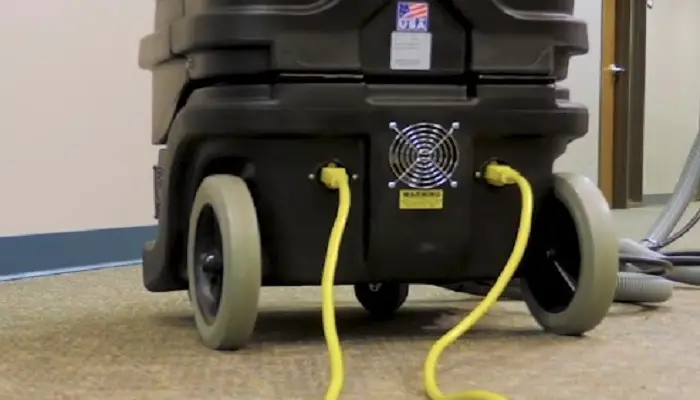
For power compatibility, you must look for cords that can handle around 10 to 15 amps. Most regular lawnmowers usually have a 10 to 15 amps rating. Get cables that can handle such power.
Construction quality
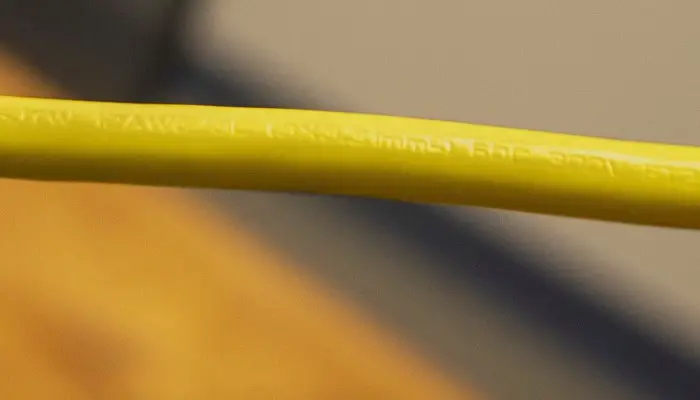
Once you get past the technical aspects, you have to think about the construction of the cords. Get a cord with good heat protection, proper weatherproofing, and a quality jacket on the outside.
Cord flexibility
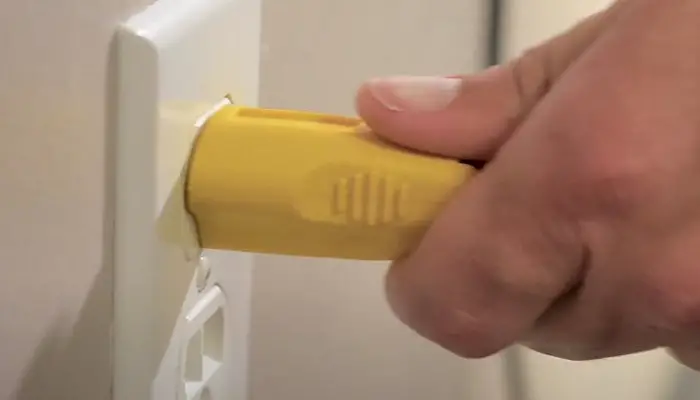
While the cords must be sturdy and durable, you must also consider flexibility. If you can’t bend the cords properly, using the mower through your lawn can be difficult. So, look for a flexible cord to easily move it around.
Read Also:How to Use a Corded Lawn Mower to Avoid Danger?(Explained)
FAQs
Let’s go ahead and check out some popular questions regarding lawnmower extension leads. Going through these may clear out any remaining confusion regarding these cords.
Does using an extension cord impact lawn mower power?
Yes, when you have a longer extension cord, it can impact the lawn mower’s power a lot. Sometimes amperage tends to drop over a longer distance, which causes the mowers to lose power with a longer cord.
Should I get 2-prong cords or 3-prong cords?
It mostly depends on the requirements of your lawn mower. If the lawn mower uses 2-prong cords, then you have to get such cords, and the same goes for 3-prong cords. But for the most part, 3-prong cords are more common for lawnmowers.
What gauge cord works out well for 10 amp rated mowers?
When you have a 10-amp mower, a 16-gauge extension cord works well with 100-foot longer cords. You can also go with a 12 gauge, but it has to be longer to handle the added load from a 10-amp mower.
Read also: Electric Lawn Mower Run Over Cord: How Dangerous Is It?
You can also read our previous articles on extension cords here:

Say hello to Afrabby – your go-to research expert turned gardening expert, lawn care aficionado, and a skilled lawn mower mechanic! With years of hands-on experience and a passion for cultivating lush green landscapes, Afrabby is your partner in achieving the lawn of your dreams.
Whether you’re seeking expert advice on plant selection, weed control, or optimal mowing techniques, Afrabby’s got you covered. Equipped with the knowledge to diagnose and fix mower troubles, your lawn equipment is in safe hands. Let Afrabby transform your outdoor space into a stunning oasis you’ll love to show off!

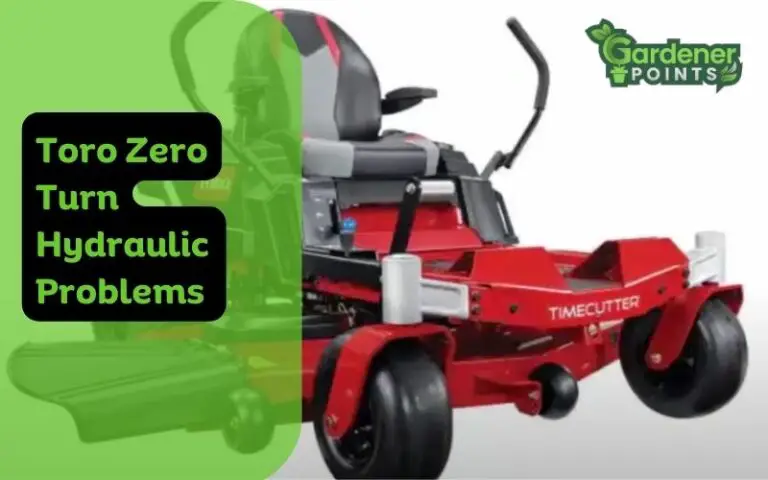
![New Holland 134 Hydraulic Oil Equivalent [All You Must Know]](https://gardenerpoints.com/wp-content/uploads/2023/09/New-Holland-134-Hydraulic-Oil-Equivalent-768x480.jpg)
